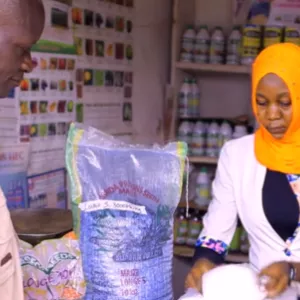Gender bias in bargaining: Lessons from haggling over the price of seed in rural Uganda
BY BJORN VAN CAMPENHOUT AND LEOCARDIA NABWIRE OPEN ACCESS | CC-BY-4.0 In developing countries, haggling over prices of goods and services is common practice. A range of personal, economic, social and cultural factors influence strategies used during the bargaining process—and ultimately its outcome. For example, bargaining between a government official who pulls up in an expensive SUV and a poor woman

Gender bias in bargaining: Lessons from haggling over the price of seed in rural Uganda
In developing countries, haggling over prices of goods and services is common practice. A range of personal, economic, social and cultural factors influence strategies used during the bargaining process—and ultimately its outcome. For example, bargaining between a government official who pulls up in an expensive SUV and a poor woman selling tomatoes in a roadside stall is likely to be very different from that of two traders of equal standing cutting a deal involving a few tons of maize.
In a recent study conducted in rural Uganda, we built on prior research that hinted at biased perceptions against female-managed agro-input shops, examining the intricate dynamics that govern bargaining over a bag of maize seed of an improved variety. Employing a lab-in-the-field experiment, we focused on unraveling the complexities of negotiations between sellers and buyers, and in particular on how the gender of the seller shapes the bargaining process and outcomes—finding that women face a distinct negotiating disadvantage.

